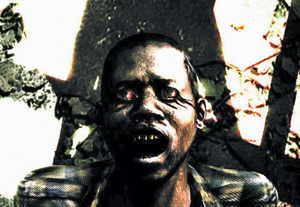
It’s no secret that Israel’s supporters are facing difficult times on America’s college campuses. And it’s no secret that anti-Israel rhetoric has a way of morphing into antisemtic rhetoric. But sometimes I sense that American Jews feel that our need to defend and support Israel excuses us from being concerned about other social issues in general, and about race issues in particular.
Case in point: On Wednesday night December 3, I was in Manhattan and heard Bret Stephens speak about his book, America in Retreat: The New Isolationism and the Coming Global Disorder. Stephens (who is Jewish) was addressing a Jewish audience, and in the course of his talk he praised black Americans for seeing to it that racist jokes against black people are absolutely taboo, whereas American Jews have allowed antisemitism to flourish in the guise of anti-Israel statements. Stephens made this remark only a few hours after a grand jury decided not to indict policeman Daniel Pantaleo for the death of Eric Garner. Stephens was not given pause by the grand jury’s decision to reconsider the exact gains that blacks have made in America, and no one in his audience challenged him on this.
Many times, we Jews seem to play dumb when it comes to race in America. Amid the turmoil in December, Joe Piscopo of Saturday Night Live fame said on his morning radio show something like: “I don’t get it. We have a black President, and yet we are seeing lots of police brutality against black people.” I think that many American Jews share Piscopo’s confusion.
I’m happy to say that there are American Jewish leaders who are trying to get us to think and feel differently about race issues. I spent the first Shabbat in December with my cousins Reba and Kevi Wulkan in Englewood, New Jersey. On Saturday morning I heard Rabbi Shmuel Goldin speak at their synagogue, Ahavath Torah. Rabbi Goldin urged his congregants to be like the patriarch Jacob and move out of their spiritual comfort zones, both when it comes to being sympathetic to Gazan civilians who are without homes this winter (when our comfort zone is to say “the war was their fault”), and to feel for African Americans and what they are going through, especially in light of the Garner case (when our comfort zone is to say “this is not our problem”).
Since I’m often as confused about race in America as Piscopo, I’m going to end this column with some straight talk by a scholar in this field. A friend put me in touch with Dr. Karsonya Wise Whitehead, Assistant Professor of Communication and African and African American Studies at Loyola University Maryland, and I wrote to her asking if there was anything to note from the current awareness of racism against black people.
Dr. Whitehead wrote back: “As a student of history, I am a bit disappointed when people talk about the ‘current awareness of racism against black people’ as if this is a new occurrence and not an ongoing problem that exists within a political, social, and economic system that is built upon systemic racism. This system that we are functioning under has led its citizens to believe that we are currently a post-racial nation simply because we have a black President. The issues that we struggle with within the black community–including rising illiteracy rates, an active classroom to prison pipeline, extreme poverty, the criminalization of the black male body, broken families, rising unemployment rates, high rates of high school drop outs and teenage pregnancy, the new Jim Crow (to name just a few)–are too vast and complicated to solve by one man over a short period of time. In addition, the issues that we are attempting to address through the #BlackLivesMatter Movement [see blacklivesmatter.com] are only the tip of the iceberg of the work that needs to be done to change the current reality for black males and females. Although I am concerned about the number of unarmed young black males who are being killed at the hands of police officers and vigilantes, I am even more concerned that we do not have solutions in place to address the next wave of problems that we need to address in order to shift the everyday reality of the injustice that is a part of living and breathing while black in America.”
Copyright 2015, Teddy Weinberger
Teddy Weinberger, Ph.D., writes from Givat Ze’ev–a suburb of Jerusalem just over the Green Line.
By Teddy Weinberger











